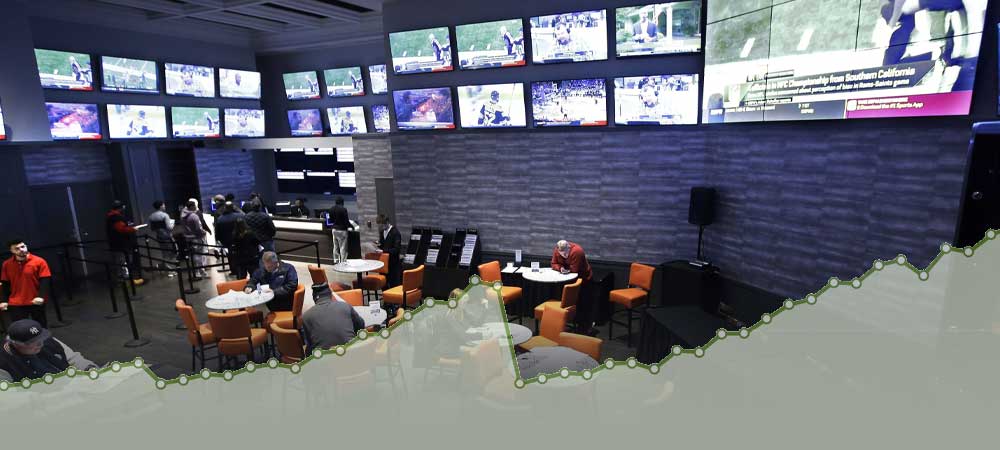- The bill would allow sports betting in Indiana to be held at retail sportsbooks and through mobile sports wagering platforms.
- Indiana Governor Eric Holcomb will have seven days to either sign the bill into law, veto it, let it pass without his signature.
- The proposed legislation would also allow for the relocation of two riverboat casinos in the state.
INDIANAPOLIS – With only one signature left needed to legalize sports wagering in Indiana, sports fans from across the state are holding their breath.
Once the sports betting bill IN HB 1015 makes it on to Indiana Governor Eric Holcomb’s desk he will have seven days to either sign it into law, veto the measure, or let it become law without his signature.
The bill passed through the Senate by a voting margin of 37-12 and was then renamed in the State House and passed by a vote of 59-36 before being called into a special committee meeting between bipartisan members of the two chambers before the final version of the bill was approved.
The final version of the proposed legislation would approve sports betting on both collegiate and professional level sports as well as both retail and state-wide mobile sportsbooks.
Bettors would also have to be 21 years old or older and placing wagers on high-school games, esports, and virtual sports would be prohibited.
State lawmakers on both sides seem to agree on the provisions concerning sports betting in Indiana, however, this bill would change the entire gambling industry as a whole in the state.
In IN HB 1015, the state would approve horse racing tracks to start offering table games as early as January 1, 2020, and increases the number of casinos a gaming company can operate from two to six venues in total.
By doing so, Spectacle Entertainment would hold the greatest power over the gambling industry in the state and would be responsible for much of the tax revenue the state of Indiana would collect from any gambling activities.
Spectacle Entertainment owns the two Lake Michigan based casinos Majestic Star I and Majestic Star II. The bill would allow them to relocate one of the casinos to a more heavily trafficked area but give up their second license to Terre Haute.
Although, Spectacle Entertainment could simply bid later in order to win that license back. Also, by moving more inland, the relocated casino could potentially become the largest casino in the state and would be able to offer just as many gaming activities as it’s two riverboat casinos combined.
The main issue is that rather than taxing the new relocated casino as a single larger one, Spectacle would continue to be taxed as having two smaller ones which would save them millions.
This issue may hold Governor Holcomb back from approving the overall bill for sports betting in Indiana, but he has not yet issued a statement as to his intentions with it.

